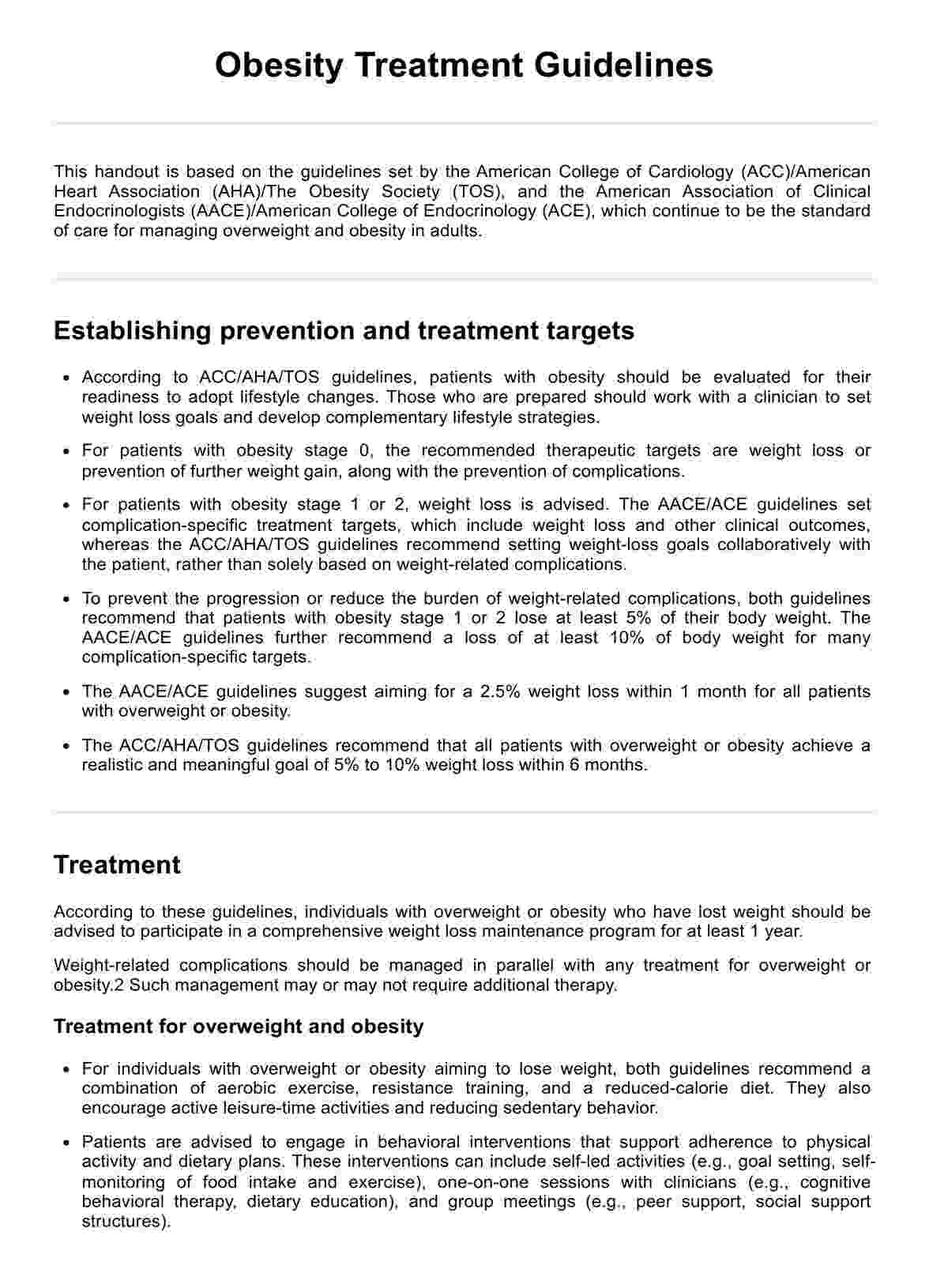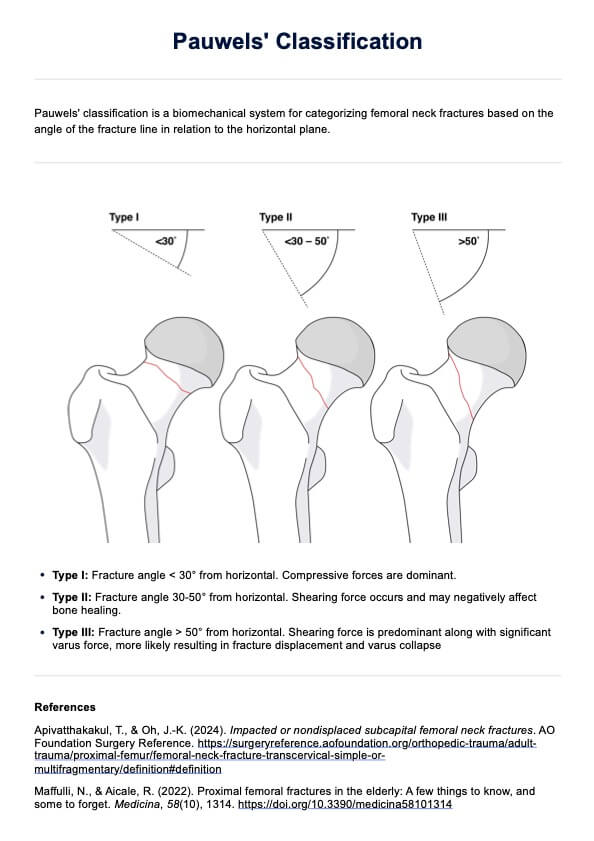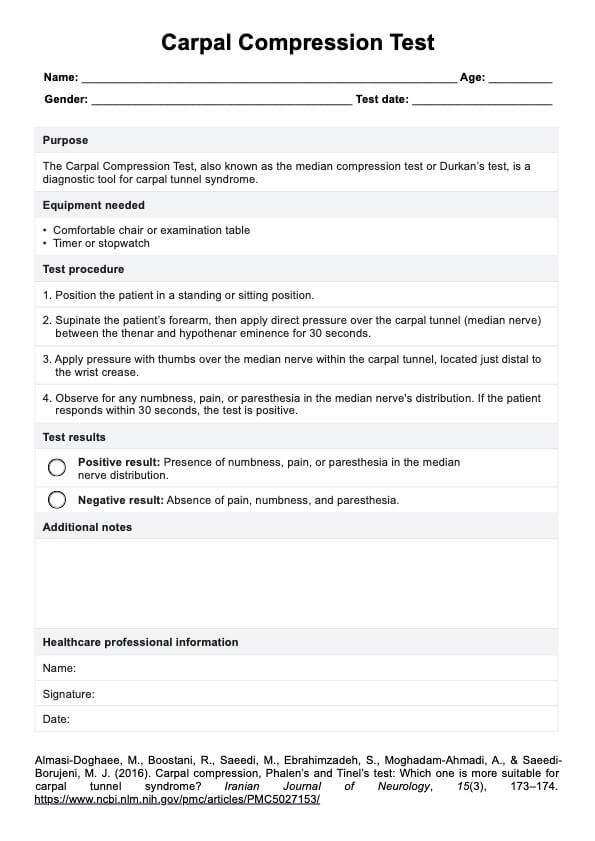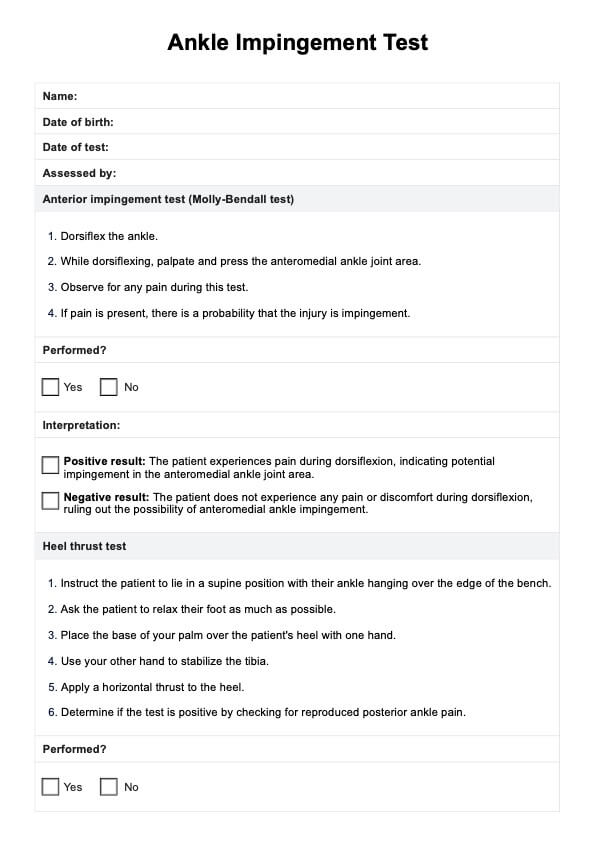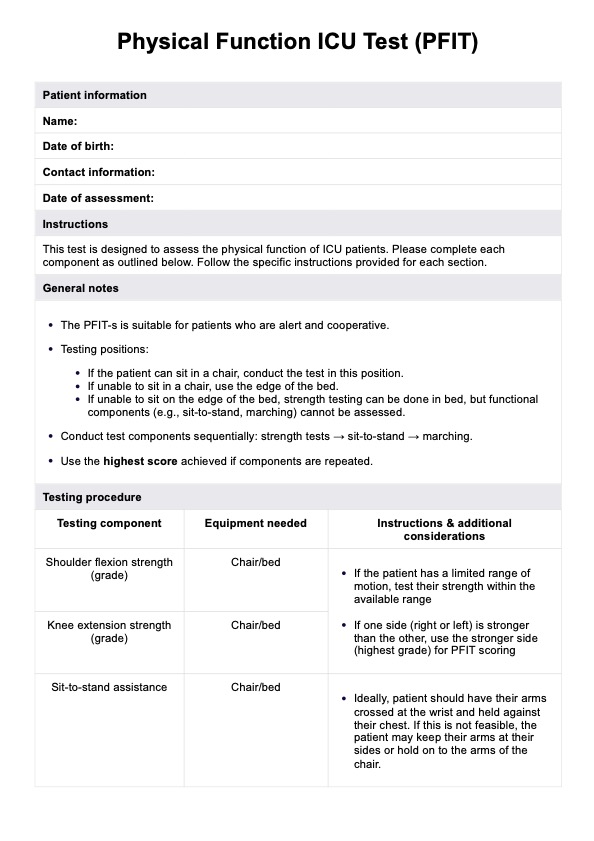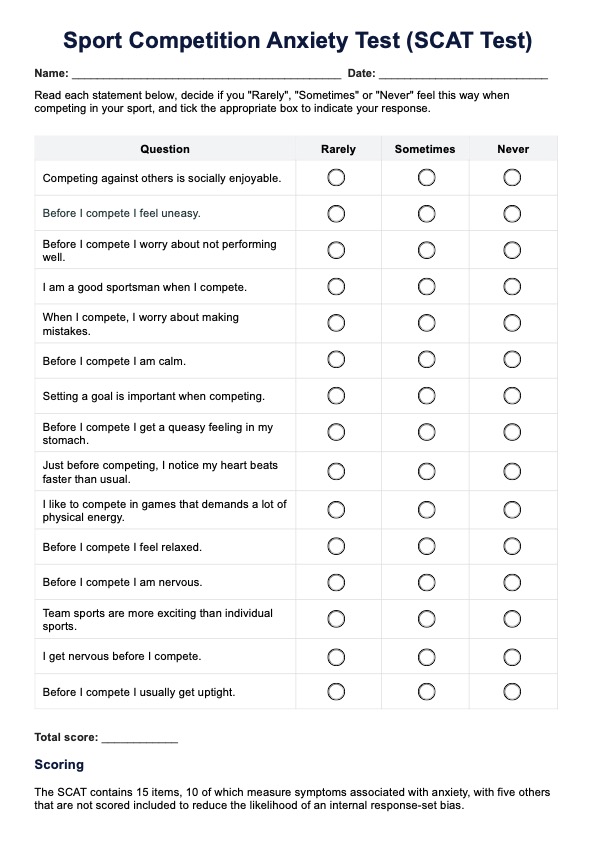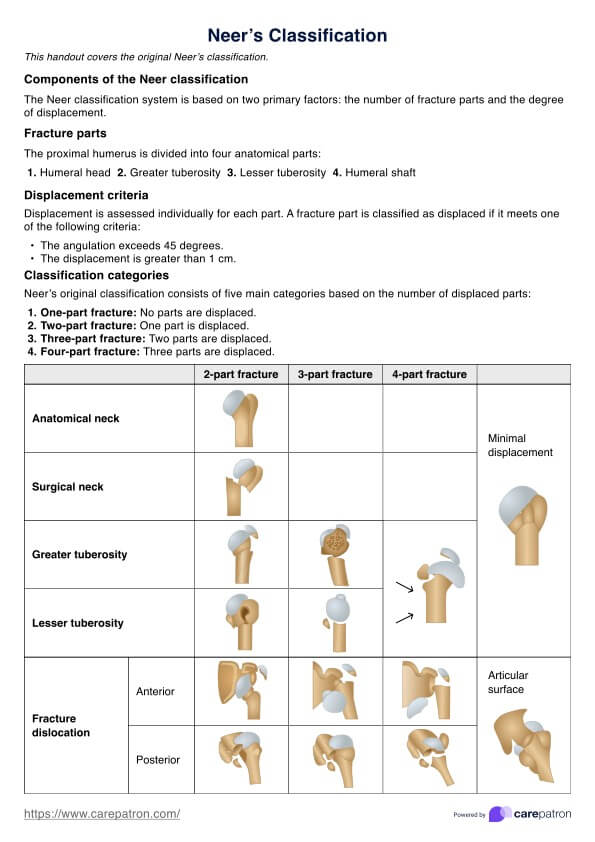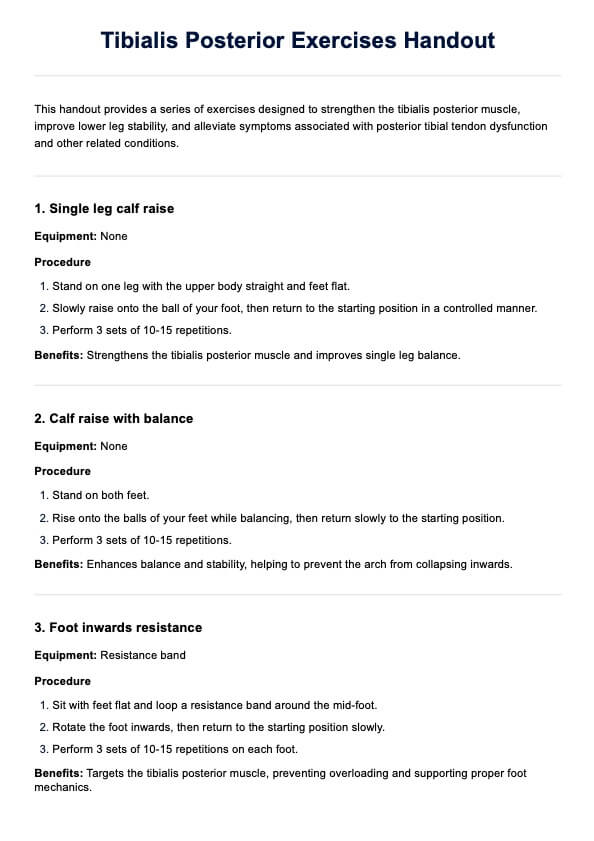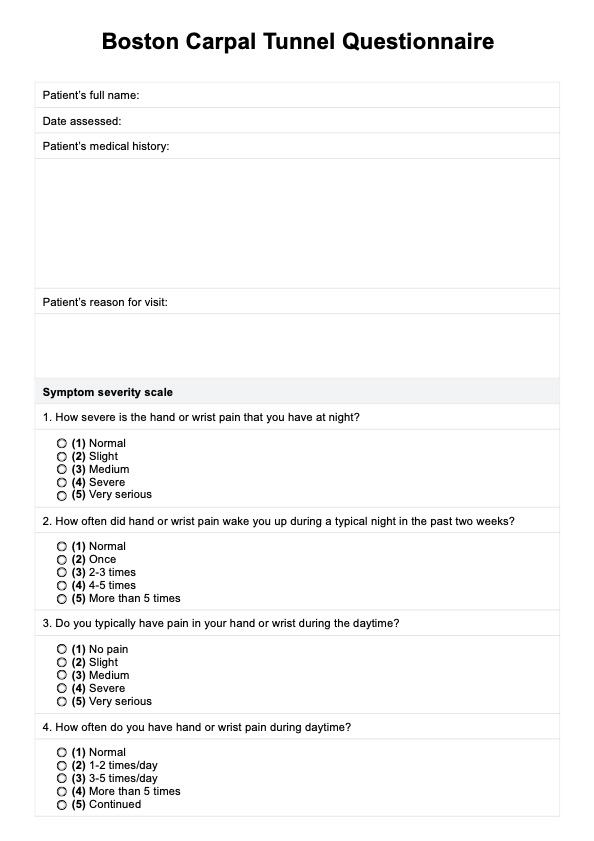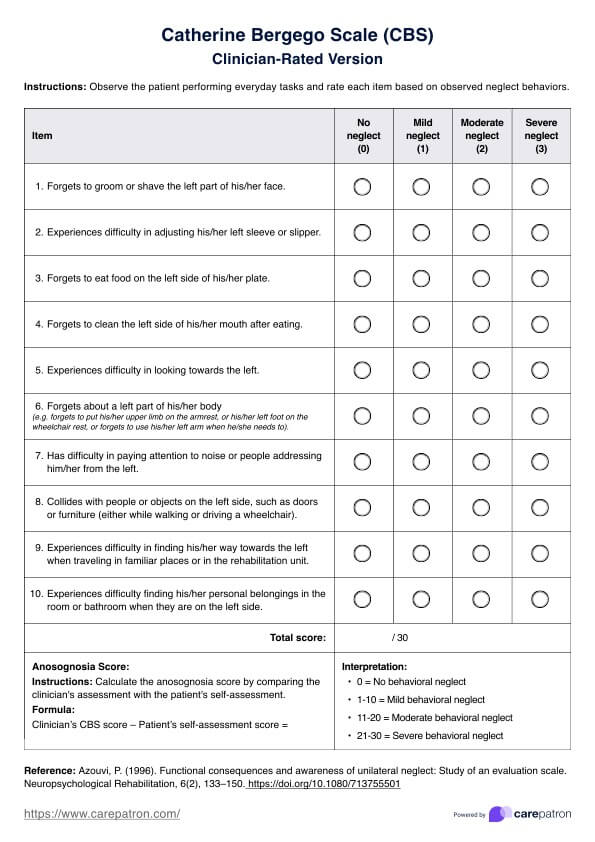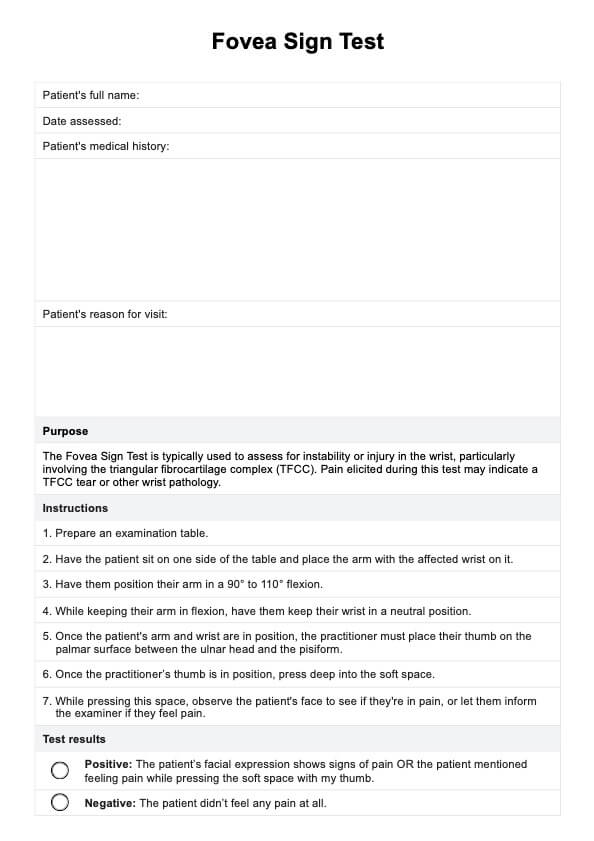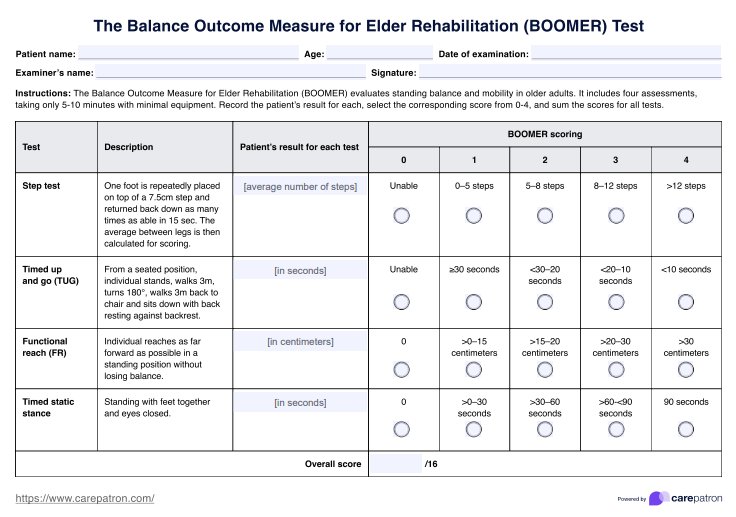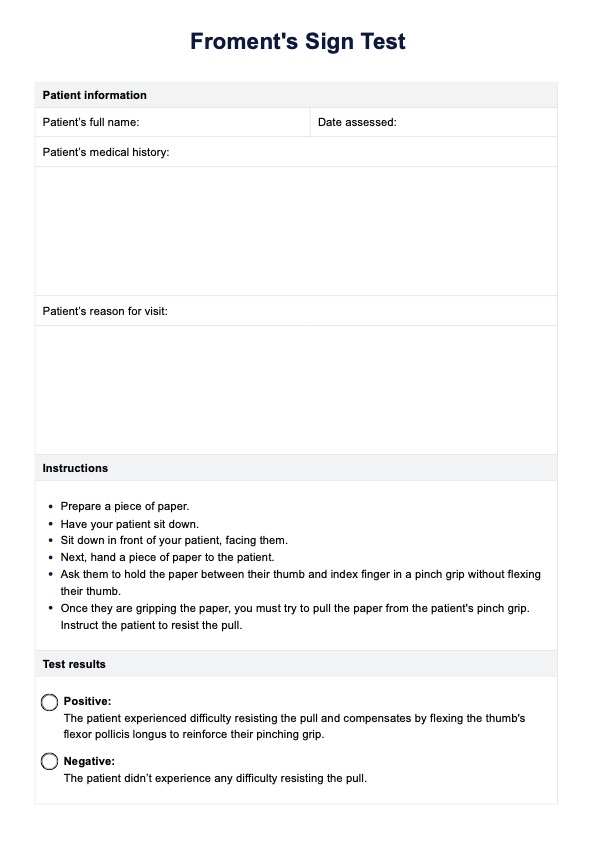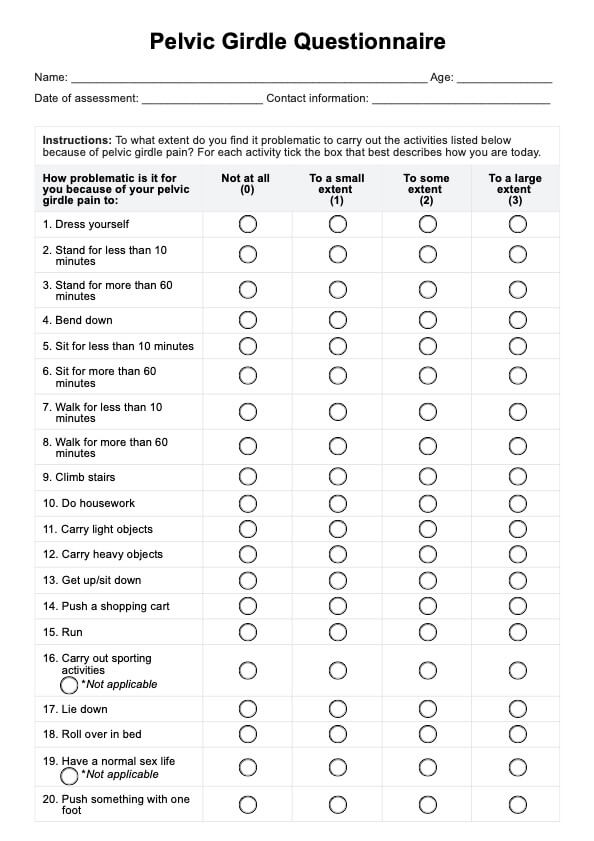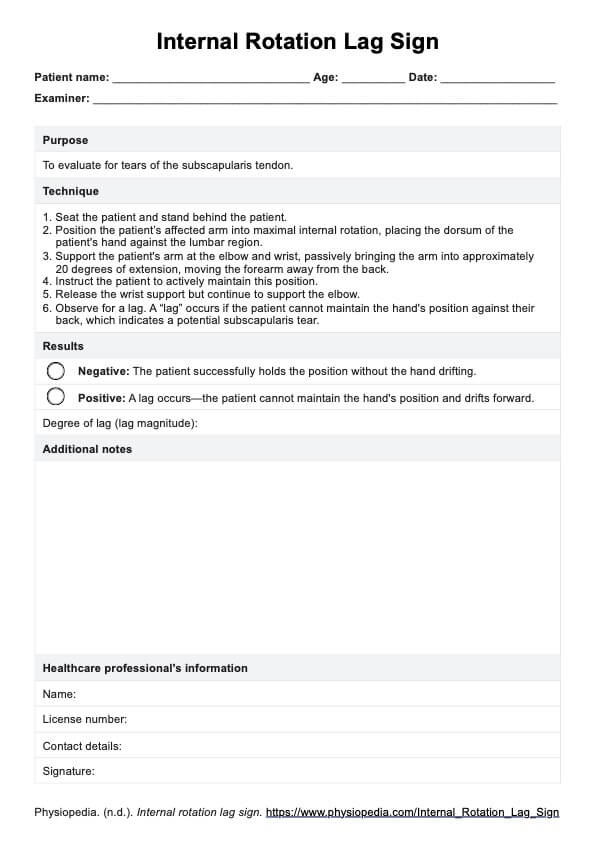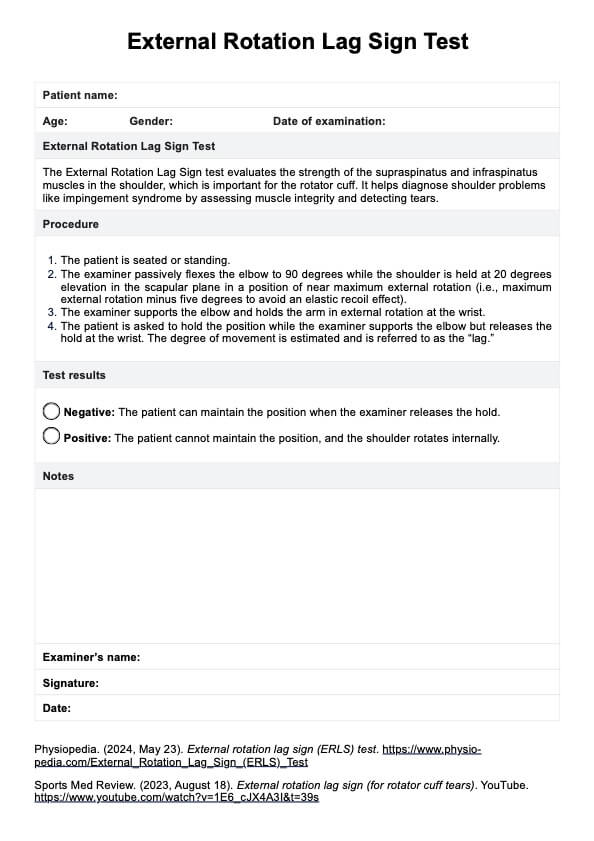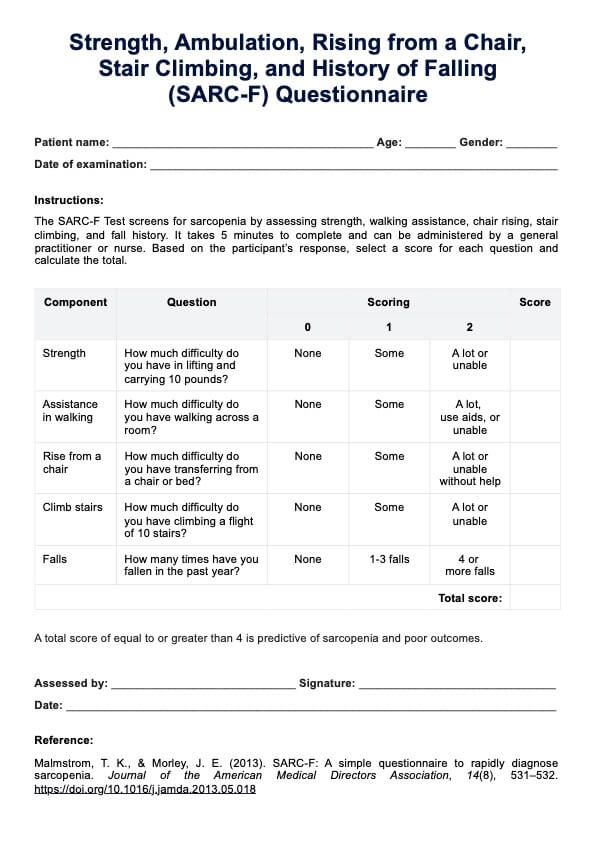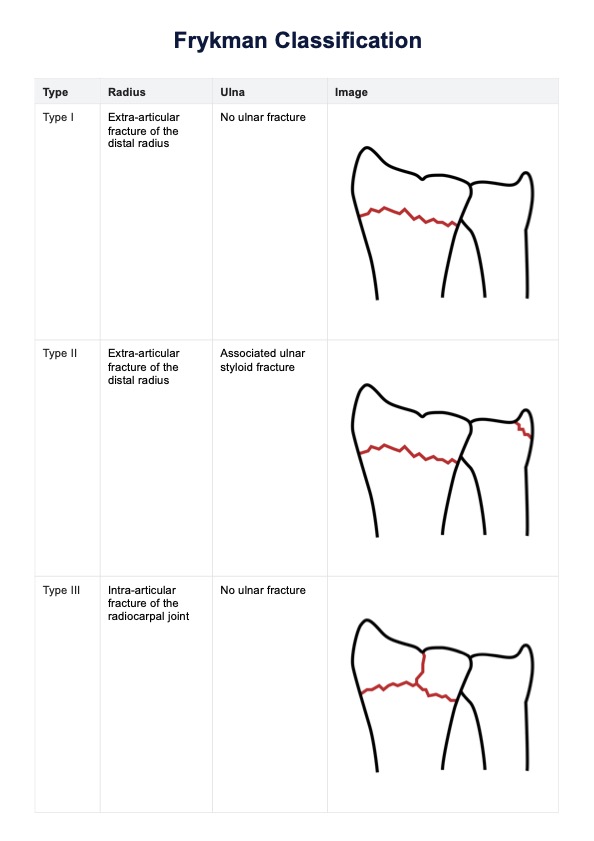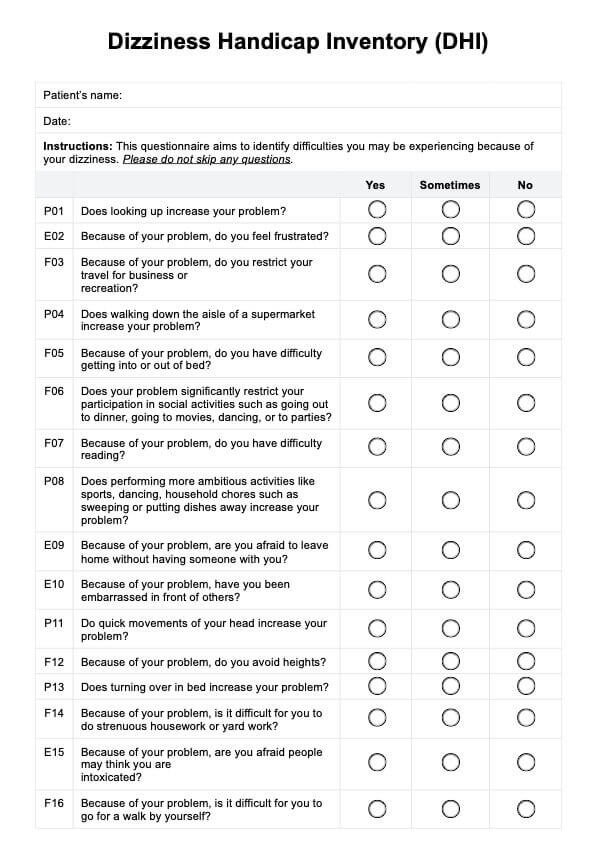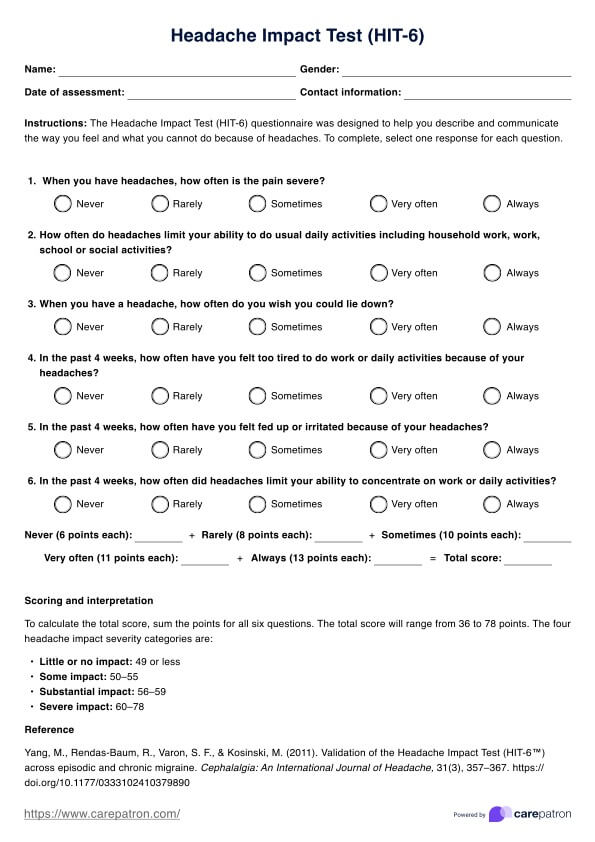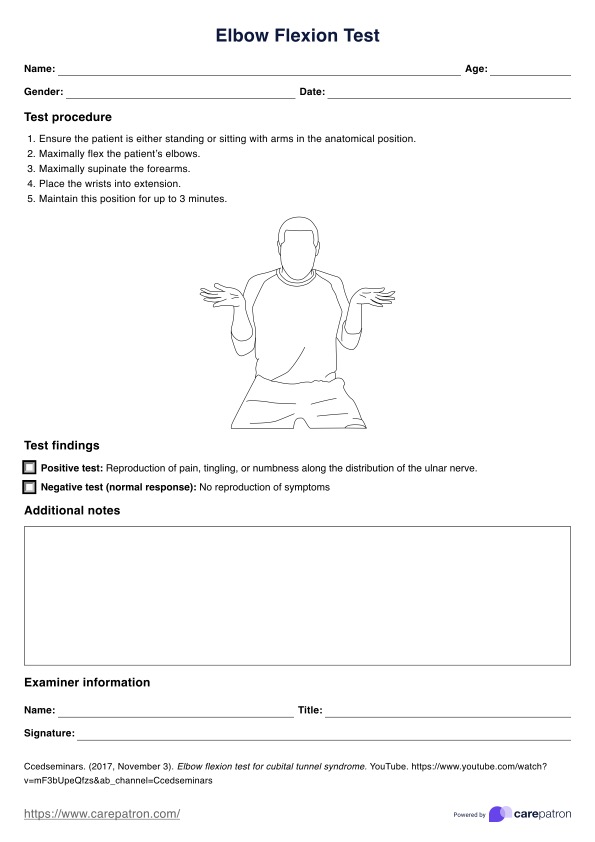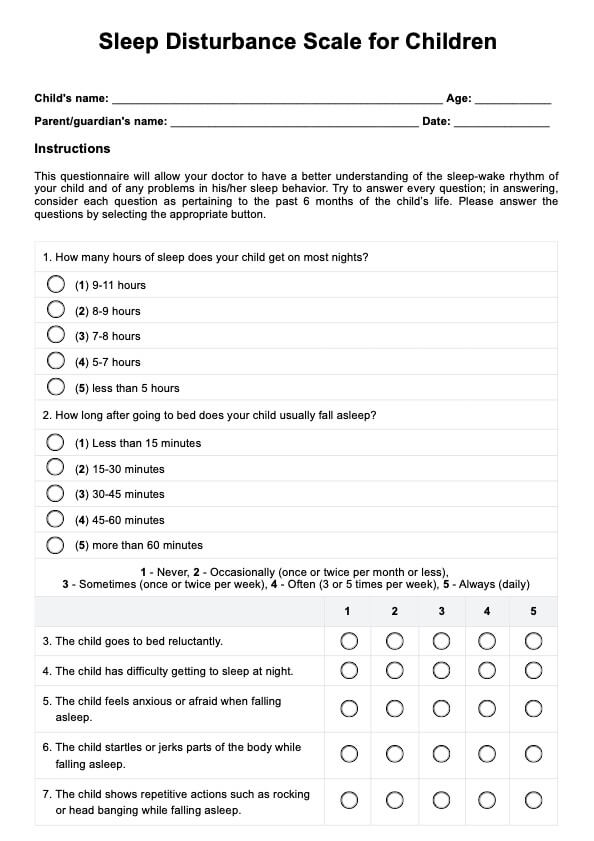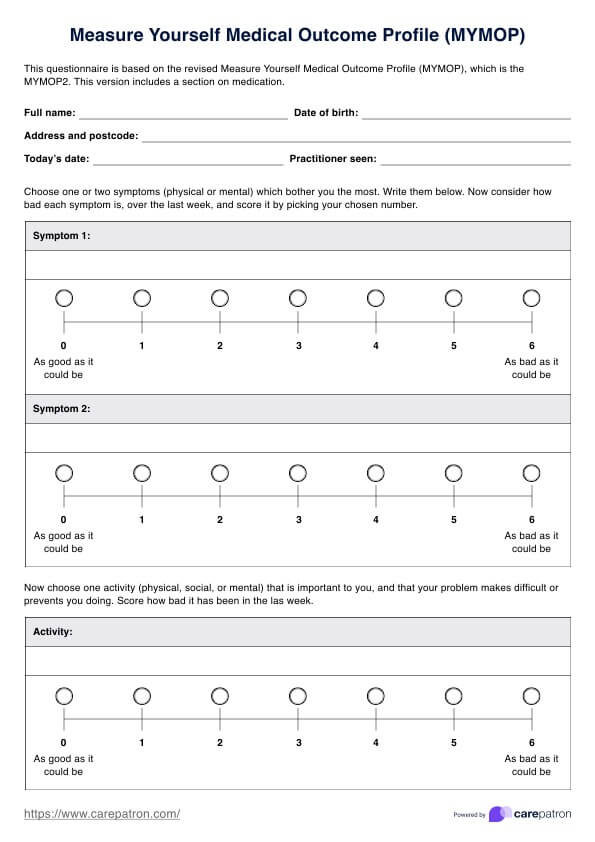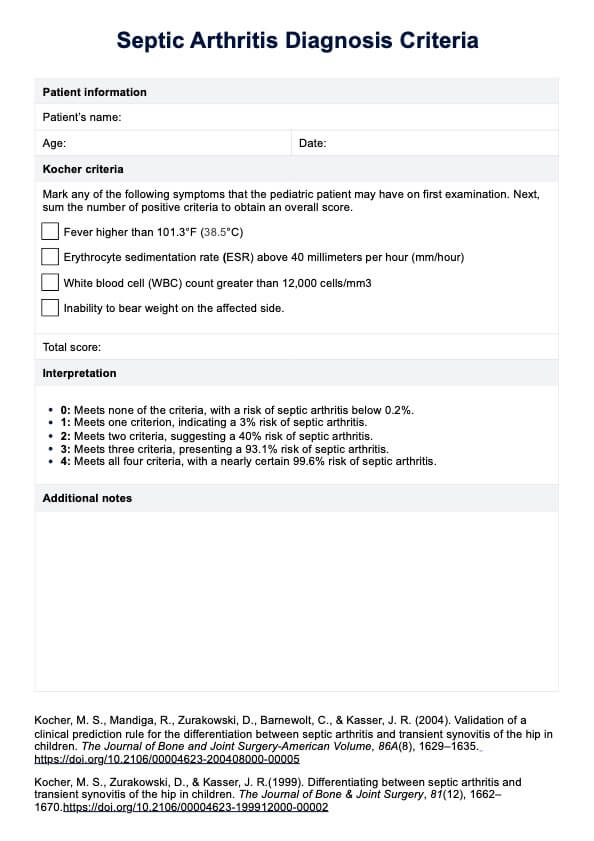Obesity Treatment Guidelines Handout
Download Carepatron's free PDF handout and example of obesity treatment guidelines, providing valuable insights on best practices and approaches for managing obesity effectively.


What is obesity?
Overweight or obesity is a complex medical condition characterized by excessive body fat accumulation that poses significant health risks. It is typically measured using the body mass index (BMI), a calculation based on height and body weight. A BMI of 30 or above is classified as obese, while a BMI of 40 or higher is classified as serious obesity. Overweight and obesity increase the risk of various health issues, like improving cardiovascular risk factors, obstructive sleep apnea, and type 2 diabetes.
Obesity results from a combination of genetic, behavioral, and environmental factors that lead to an energy imbalance and associated weight gain. Effective obesity management often involves a multifaceted approach, including lifestyle modifications such as diet and exercise, behavioral therapy, and, in some cases, maintain weight loss medication. Developing clinical practice guidelines recommend that individuals struggling with obesity seek professional help for weight management. A bariatric surgery patient might be considered to help them lose weight.
Achieving and maintaining a healthy body weight is crucial for reducing the risk of obesity-related conditions and improving overall health. To promote weight loss, even in modest amounts, can lead to significant health benefits. Understanding and addressing the underlying causes of obesity is essential for effective long-term weight management and improved quality of life.
Potential problems obesity leads to
Obesity can have serious health consequences that impact various aspects of a person's life. Below are some of the key health related quality problems associated with obesity:
- Heart disease: Increased cardiovascular risk factors like heart disease, hypertension, cardiovascular outcomes, and stroke.
- Type 2 diabetes: Higher likelihood of developing insulin resistance and diabetes.
- Obstructive sleep apnea: Breathing interruptions during sleep, leading to poor sleep quality.
- Joint problems: Osteoarthritis and other joint issues due to excess initial body weight putting strain on joints.
- Certain cancers: Increased risk of cancers such as breast, colon, and endometrial cancer.
- Liver disease: Increased likelihood of developing fatty liver disease and cirrhosis.
- Digestive problems: Higher risk of digestive and kidney diseases like gastroesophageal reflux disease (GERD) and gallstones.
- Mental health issues: Greater incidence of depression, anxiety, and other mental health disorders.
- Reproductive issues: Complications in pregnancy and higher risk of infertility.
- Metabolic syndrome: Cluster of conditions increasing the risk of heart disease, stroke, and diabetes.
These potential problems highlight the importance of effective overweight or obesity management and treatment to improve health outcomes and quality of life.
Obesity Treatment Guidelines Handout Template
Obesity Treatment Guidelines Handout Example
Obesity treatment guidelines
The treatment of overweight or obesity involves a combination of lifestyle changes, medications, and surgical interventions guided by evidence-based clinical practice guidelines.
These guidelines were a combination of developed guidelines by reputable organizations such as the American College of Cardiology (ACC), American Heart Association (AHA), The Obesity Society (TOS), and the American Association of Clinical Endocrinologists (AACE), offer a framework for managing overweight and obesity in adults.
Below are five essential procedures and treatments outlined in these guidelines:
Lifestyle modifications
Overweight and obese patients are encouraged to adopt a balanced diet, reduce caloric intake, and increase physical fitness activity. Behavioral strategies, such as self-monitoring, goal setting, and counseling, are essential to lifestyle therapy. Regular follow-ups with healthcare providers help ensure adherence and address any obesity related complications.
Obesity pharmacotherapy
Pharmacotherapy, or the use of weight loss medications, is recommended for individuals who have not achieved significant weight loss through lifestyle therapy alone. Medications approved by the FDA for long-term use include orlistat, lorcaserin, phentermine-topiramate, bupropion-naltrexone, and liraglutide. These medications work through various mechanisms, such as reducing appetite or inhibiting fat absorption, and are prescribed based on the patient's health profile and weight-related complications.
Metabolic and bariatric surgery
For individuals with severe obesity (BMI ≥ 40 or BMI ≥ 35 with weight-related complications), metabolic and bariatric surgery is an effective treatment option. Patients undergoing bariatric procedures such as gastric bypass, sleeve gastrectomy, and adjustable gastric banding can produce substantial and sustained weight loss maintenance. These surgeries alter the digestive system to limit food intake and medical nutrition therapy, leading to significant improvements in obesity-related comorbidities like type 2 diabetes and cardiovascular disease.
Comprehensive weight management programs
Clinical guidelines emphasize the importance of comprehensive weight programs, which integrate various treatment modalities and provide continuous support. These programs often involve a multidisciplinary team, including physicians, dietitians, psychologists, and exercise specialists, to address the multifaceted nature of obesity. Ongoing patient-clinician partnerships are crucial for monitoring progress, adjusting treatments, and ensuring long-term success in managing this chronic disease.
How healthcare professionals will benefit from this handout
Healthcare professionals will benefit significantly from the Obesity Treatment Guidelines Handout by Carepatron. This handout provides a structured, evidence-based framework for the management of obesity, ensuring that practitioners can offer comprehensive and consistent care. It streamlines the assessment and treatment process, making it easier to record essential metrics such as BMI, body composition, and waist circumference.
Through the clinical practice guidelines and integrating systematic review and meta-analysis data, healthcare providers can develop personalized treatment plans that include lifestyle modifications, pharmacotherapy, and weight loss surgery options like bariatric surgery. The handout also facilitates clear communication with patients, helping them understand their treatment goals and progress.
Commonly asked questions
The most effective treatment for obesity typically involves a combination of lifestyle intervention, such as diet and exercise, along with behavioral therapy and, in some cases, pharmacotherapy or bariatric surgery, depending on the individual's needs and health status.
The general line of treatment for adults with obesity begins with lifestyle intervention, including reduced calorie diet changes and increased physical activity. If lifestyle interventions alone are insufficient, healthcare providers may consider incorporating pharmacotherapy or bariatric surgery as additional treatment options.
The 5 A's of obesity treatment include Assess, Advise, Agree, Assist, and Arrange. This approach involves assessing the patient's readiness for change, advising on behavior modifications, agreeing on treatment goals, assisting with implementation, and arranging follow-up and support.
Bariatric surgery, particularly procedures such as gastric bypass and sleeve gastrectomy, is considered the gold standard treatment for grievous obesity. These surgical interventions produce substantial and sustained weight loss, leading to improvements in obesity-related health conditions.


